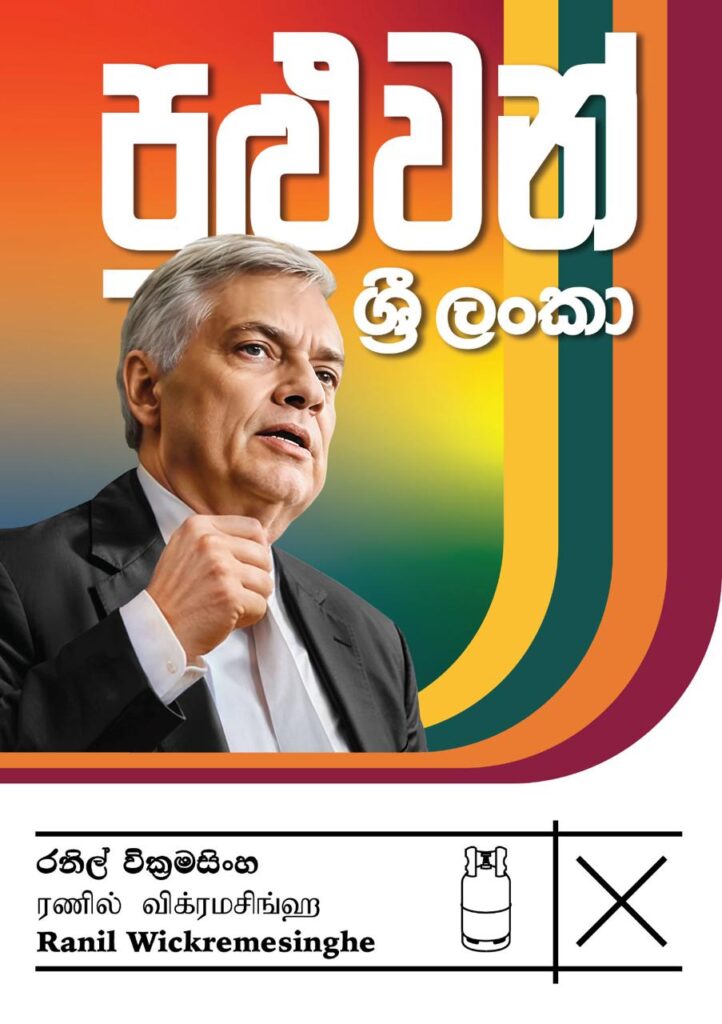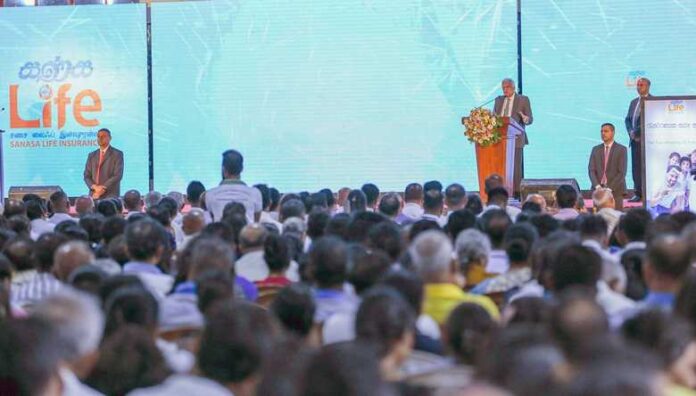By: Staff Writer
September 03, Colombo (LNW): A new investment company will be established to manage state assets, ensuring that the rights of citizens are safeguarded.
Speaking at a recent event in Colombo, the President Ranil Wickremesinghe emphasized the need for new legislation to support this initiative, highlighting the potential for investments that would not only generate assets but also create a structured retirement planning system.
The event, which saw the launch of a new retirement insurance system for the elderly through the SANASA Movement, was marked by the symbolic handover of six new insurance policies for senior citizens.
President Wickremesinghe reflected on his leadership during the country’s economic crisis, underscoring the importance of public patience in avoiding a fate similar to that of Bangladesh.
He recalled that the United National Party government, established in 1977, had opened up the economy, leading to the creation of various institutions and businesses, including the SANASA Movement.
This movement, initiated by Mr. P.A. Kirivandeniya, played a significant role in promoting equitable resource distribution and contributing to the Sri Lankan economy.
The President acknowledged the economic collapse in 2022 and noted the difficult decisions made to stabilize the economy, including consultations with the International Monetary Fund (IMF).
With the economy now on a stable footing, he expressed optimism about the increasing purchasing power of the people, which is expected to spur small businesses and attract investors.
In line with the government’s commitment to granting “rights” to the people, President Wickremesinghe announced the distribution of two million freehold deeds to secure land rights and the provision of free urban flats in Colombo.
He also outlined plans to create estate villages in the upcountry, providing each family with a plot of seven perches.
Additionally, the government is focusing on providing subsidized housing loans to low-income earners.
The President explained that with reduced government spending and increased state revenues, there would be less need to use funds from the Employees’ Provident Fund (EPF) and Employees’ Trust Fund (ETF) for bond purchases.
Instead, these funds could be redirected towards investment opportunities, with input from trade unions and employers.
Looking ahead, President Wickremesinghe revealed plans to establish a National Wealth Fund using government assets, modeled after successful investment companies in countries like Norway, Qatar, and Singapore.
This fund would ensure that profits from government revenues are used for public welfare, securing citizens’ rights.
The SANASA Movement, already engaged in social investment programs, will be supported by new laws inspired by legislation in Denmark and Sweden. These laws will also address investments and retirement plans, providing a framework for the new initiatives.
President Wickremesinghe encouraged young entrepreneurs to explore opportunities in the digital economy and emphasized the importance of modernizing agriculture and fishing for economic growth.
In response to the aging population, the government has introduced a new insurance system tailored for the elderly, with premiums starting as low as Rs. 10. This initiative, which incorporates new technology, is expected to grow and provide vital support for the future.



